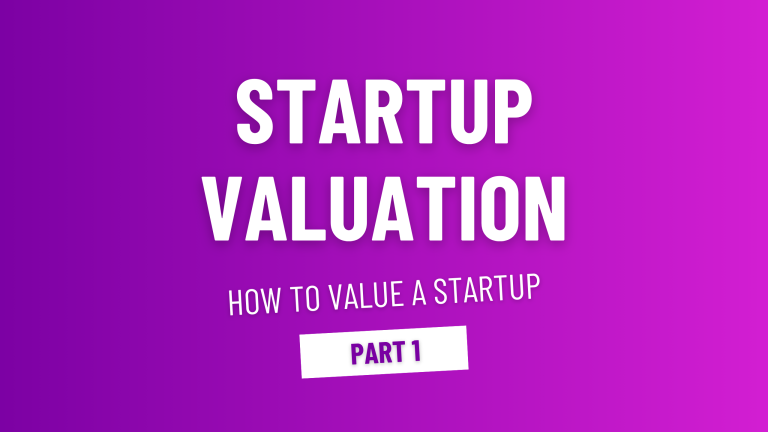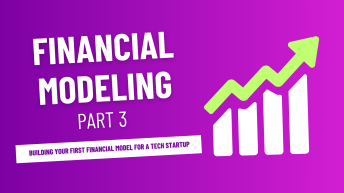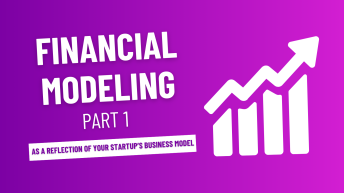Introduction: Why Startup Valuation Matters
For startup founders, valuation is more than just a number. It represents your company’s potential and shapes critical decisions like funding rounds, equity distribution, and investor negotiations.
In regions like the MENA ecosystem, with its mix of emerging markets and booming industries like fintech, e-commerce, and renewable energy, valuation challenges are unique. Many startups operate in uncertain markets with limited benchmarks or revenue history. This is where qualitative valuation methods become essential—they help highlight your strengths and future potential instead of relying solely on financial metrics.
Valuation Methods at a Glance

| Method | Best For | Focus Areas |
| Scorecard | Early-stage, seed startups | Comparison to market benchmarks |
| Berkus | Pre-revenue startups | Milestones like MVP and team |
| Risk Factor Summation | Startups with high uncertainty | Risk-adjusted valuation |
| Step-Up | Early Growth-stage startups | Milestones tied to progress |
Scorecard Method
What It Is
The Scorecard Method helps you compare your startup to others in your region and industry. Think of it as grading yourself against what investors typically expect for startups at your stage.
Why Use It?
It’s a great way to see how you measure up to competitors, especially if you’re raising a seed or early-stage round.
How It Works
- Set a Benchmark: Start with the average valuation of startups like yours in MENA.
Example: The typical valuation of seed-stage fintech startups in MENA is $2 million. - Evaluate Key Factors: Rate your startup on:
- Market Opportunity (25%): Is your market big and growing?
- Product (15%): How unique and developed is your product?
- Team (30%): Does your team have the skills to execute?
- Business Model (10%): Is your business scalable and clear?
- Competition (10%): How crowded is your market?
- Other Factors (5%): Does your Startups Got Early Customer Feedback?
- Adjust the Valuation: Apply percentage changes based on your ratings.
| Factor | Range | Your Score | Factor |
| Strength of Entrepreneur and Team | 30.00% | 75% | 0.225 |
| Size of the Opportunity | 25.00% | 90% | 0.225 |
| Product/Technology | 15.00% | 100% | 0.15 |
| Competitive Environment | 10.00% | 100% | 0.1 |
| Marketing/Sales/Partnerships | 15.00% | 20% | 0.12 |
| Other factors (great early customer feedback) | 5.00% | 0% | 0 |
| Final Factor | 0.82 | ||
| Startup Valuation | $1.64Mn | ||
Berkus Method
What It Is
The Berkus Method assigns monetary value to the key milestones your startup has achieved.
Why Use It?
It’s perfect for pre-revenue startups. If you have an idea, prototype, or early customer traction, this method highlights what you’ve built so far.
How It Works
- Allocate Value to Milestones:
| Milestone | Range | Your Value |
| Sound Idea (Base Value) | 0-500,000 | $200,000 |
| Quality Management Team | 0-500,000 | $300,000 |
| Prototype | 0-500,000 | $200,000 |
| Strategic Relationships | 0-500,000 | $250,000 |
| Market Traction | 0-500,000 | $0 |
| Total Valuation | $950,000 |
- Sum Achieved Milestones: Add the value of the milestones you’ve hit.
Example
Your edtech startup has a great prototype and an experienced team but is still working on partnerships and traction. Your valuation will reflect these milestones.
Risk Factor Summation Method
What It Is
This method adjusts your valuation based on risks unique to your startup, such as competition, regulatory hurdles, or technology challenges.
Why Use It?
If your startup is in an uncertain market (like renewable energy or blockchain in MENA), this approach ensures risks are fairly considered.
How It Works
- Set a Baseline Valuation: Start with $1.5 million.
- Assess Risk Factors: Assign adjustments for risks, such as:
| Risk factor summation method | (1) add, ( -1) Abstract |
| Management Risk | 1.00 |
| Stage of the business Risk | 1.00 |
| Legislation/political risk | (1.00) |
| operation risk | 1.00 |
| Sales and marketing risk | (1.00) |
| Funding/capital raising risk | 1.00 |
| Competition risk | (1.00) |
| Technology risk | 1.00 |
| Litigation risk | 1.00 |
| International risk | (1.00) |
| Reputation risk | 1.00 |
| Potential lucrative exit Risk | (1.00) |
| Sum of + values (Low Risk) | 7 |
| Sum of – Values (High risk) | 5 |
| Each value is worth: | $500,000 |
- Calculate Final Valuation: Adjust the baseline by the total risk impact.
Startup Valuation = $1.5M + 7*$500K – 5*$500K
= $2.5Mn
Example
A clean-tech startup facing regulatory risks and a crowded market may end up with a valuation of $1.4 million after adjustments.
Step-Up Method
What It Is
The Step-Up Method ties your valuation to tangible milestones, like securing funding, launching a product, or acquiring users.
Why Use It?
This method keeps things simple and aligns with your progress as a founder.
How It Works
| Step Up Factor | 1 = Yes, 0 = No | |||||
| 1. Total market size over $1,000,000,000 | 1 | |||||
| 2. Business model scales well | 1 | |||||
| 3. Founders have previous exits | 0 | |||||
| 4. More than one founder committed full time | 1 | |||||
| 5. MVP developed; customer development underway | 1 | |||||
| 6. Business model validated by paying customers | 1 | |||||
| 7. Significant industry partnerships signed | 1 | |||||
| 8. Execution roadmap developed and being achieved | 1 | |||||
| 9. IP issued or significant barriers to entry | 1 | |||||
| 10. Competitive environment favorable | 1 | |||||
| Total Step Factors | 9 | |||||
| × | ||||||
| Each “Yes” is worth: | $250,000 | |||||
| = | ||||||
| Estimated Pre-Money Valuation: | $2,250,000 | |||||
Choosing the Right Method
| Startup Stage | Recommended Method |
| Idea/Pre-Seed | Berkus |
| Seed/Early Stage | Scorecard |
| High Uncertainty | Risk Factor Summation |
| Early Growth/Revenue Stage | Step-Up |
For MENA founders, startup valuation is both an art and a science. These four methods—Scorecard, Berkus, Risk Factor Summation, and Step-Up—provide flexible tools to showcase your startup’s value, even with limited financial data.
By using these frameworks, you can approach investors with confidence, backed by a clear understanding of what your startup is worth and why. Tailor the method to your stage and market, and you’ll be better prepared to build and scale your vision.
🚀 Ready to fuel your startup’s growth? Join multiples.cc today! Gain access to valuable tools, connect with investors, and get personalized support to help you succeed on your fundraising journey. Sign up now and take the next step toward securing the resources your startup needs to thrive!






Add comment